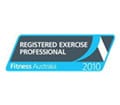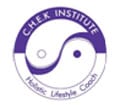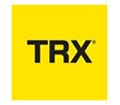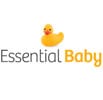High cholesterol is a common health concern worldwide, significantly contributing to heart disease and other cardiovascular issues.
While medications are often prescribed, several natural strategies can effectively manage cholesterol levels.
This blog explores 11 evidence-based methods to reduce cholesterol naturally but prior to that let’s get a greater understanding of what cholesterol does, why does cholesterol get a bad Bad Reputation and how to interpret your cholesterol results.
Understanding Cholesterol
Cholesterol is often misunderstood as purely harmful, but it is vital for many important biological processes. Here are its key roles:
1.Building Cell Membranes: Cholesterol is a critical component of cell membranes, providing structural integrity and fluidity.
It helps cells function properly by regulating what enters and exits.
2.Producing Hormones: Cholesterol is a precursor for steroid hormones, including:
Cortisol: Helps regulate metabolism and stress response.
Sex Hormones: Such as testosterone, estrogen, and progesterone, which are essential for reproductive health.
3. Digestive Functions: The liver uses cholesterol to produce bile acids.
Bile acids are necessary for digesting fats and absorbing fat-soluble vitamins (A, D, E, and K).
4. Vitamin D Synthesis: Cholesterol is converted into vitamin D when the skin is exposed to sunlight.
Vitamin D is crucial for bone health, immune function, and overall well-being.
5.Nerve Function –Cholesterol is a major component of myelin, the protective sheath that insulates nerve fibers.
This insulation is essential for the proper transmission of nerve signals.
Why Does Cholesterol Get a Bad Reputation?
While cholesterol is vital, too much LDL cholesterol or an imbalance between LDL and HDL can lead to serious health issues such as:
-Atherosclerosis: Plaque buildup in arteries, leading to reduced blood flow.
-Heart Disease: Increased risk of heart attacks and strokes.
-Peripheral Arterial Disease (PAD): Reduced circulation in limbs.
Interpreting your Lipid Panel Results
Total Cholesterol: The overall amount of cholesterol in your blood, including LDL and HDL. Less than 5.5 mmol/L is considered desirable.
LDL (Low-Density Lipoprotein): Often called ‘bad cholesterol,’ it can build up in your arteries, increasing the risk of heart disease. Less than 2.0 mmol/L is optimal for high-risk individuals.
HDL (High-Density Lipoprotein): Known as ‘good cholesterol,’ it helps remove LDL from your bloodstream. 1.0 mmol/L or higher is protective against heart disease.
Triglycerides: A type of fat found in your blood; high levels can increase the risk of heart disease. Less than 1.7 mmol/L is ideal.
HDL-to-LDL Ratio – This ratio compares the protective HDL cholesterol to the harmful LDL cholesterol. Less than 3.5:1 is considered optimal. A lower ratio indicates a better balance, with more protective HDL compared to LDL.
Natural Solutions for Healthy Cholesterol Levels
1. Adopt a Heart-Healthy Diet
- Eat More Soluble Fiber: Soluble fiber binds cholesterol in the digestive system, preventing its absorption into the bloodstream. Foods rich in soluble fiber include oats, legumes, fruits, and vegetables.
- Incorporate Healthy Fats: Replacing saturated and trans fats with unsaturated fats can improve cholesterol levels. Foods rich in healthy fats include avocados, nuts, seeds, olive oil, and fatty fish.
- Add Plant Sterols and Stanols: Plant sterols and stanols block cholesterol absorption in the gut. They are found in fortified foods such as orange juice, margarine, and yogurt.
2. Engage in Regular Physical Activity
Exercise boosts HDL levels and promotes the breakdown of LDL cholesterol. Aim for at least 150 minutes of moderate aerobic activity weekly, such as brisk walking, cycling, or swimming.
3. Maintain a Healthy Weight
Excess body weight is associated with higher LDL and lower HDL cholesterol. Losing even 5-10% of your body weight can lead to significant cholesterol improvements.
4. Quit Smoking
Smoking reduces HDL cholesterol and damages arterial walls, making it easier for LDL to accumulate. Quitting smoking improves HDL levels and overall heart health.
5. Manage Stress
Chronic stress can negatively impact cholesterol levels by promoting inflammation and unhealthy habits. Incorporate stress-reducing techniques such as meditation, yoga, and deep breathing exercises.
6. Reduce Alcohol Consumption
Moderate alcohol intake may increase HDL cholesterol, but excessive consumption raises LDL levels and triglycerides.
7. Natural Supplements
- Omega-3 Fatty Acids: Found in fish oil, they lower triglycerides and may improve HDL levels.
- Red Yeast Rice: Contains monacolin K, a natural statin that can lower LDL cholesterol.
- Berberine: A plant compound that reduces LDL and triglycerides while improving HDL.
- Niacin (Vitamin B3): Helps increase HDL and lower LDL.
- Psyllium Husk:A soluble fiber that effectively lowers cholesterol.
- Garlic Extract: Has been shown to moderately reduce LDL levels.
8. Stay Hydrated and Reduce Sugary Drinks
Proper hydration supports overall health and prevents inflammation that can exacerbate cholesterol issues. Additionally, cutting down on sugary beverages, which are linked to higher triglycerides and LDL cholesterol, can have a significant impact.
9. Antioxidant-Rich Foods
Foods rich in antioxidants can combat oxidative stress, which can contribute to LDL cholesterol oxidation. Examples include:
- Leafy greens (spinach, kale)
- Fatty fish (salmon, mackerel)
- Nuts and seeds (walnuts, flaxseed)
- Fruits rich in antioxidants (berries, oranges)
- Green tea
- Whole grains and legumes.
10. The Importance of Sleep
Poor sleep is linked to higher LDL levels and lower HDL levels, increasing the risk of cardiovascular issues. Sleep deprivation also raises inflammation levels, exacerbating cholesterol-related problems.
11. Good Gut Health
The gut microbiota plays a vital role in cholesterol metabolism. Certain bacteria can break down cholesterol into bile acids, which are then excreted
A healthy gut helps maintain a balance in cholesterol levels.
Probiotic-rich foods like yogurt, kefir, and fermented vegetables support gut health.
Prebiotic foods like garlic, onions, and asparagus also nourish beneficial bacteria, enhancing their ability to regulate cholesterol.
Conclusion
Reducing cholesterol naturally involves a multi-faceted approach, including dietary changes, regular exercise, stress management, and healthy lifestyle habits.
By integrating these evidence-based strategies into your daily routine, you can effectively improve your cholesterol profile and overall heart health.
Cameron Corish has been caring and achieving results for the local Wishart, Mansfield and Mt Gravatt community for over 10 years. Together with the Core Health Coaching Team, he takes a multi-disciplined and holistic approach to health and fitness addressing the physical, mental and emotional aspects of one’s health.
Ready to feel and look your best? Book a time for a FREE chat and see how we can make a difference in your life. Book here calendly.com/corehealthcoaching or email Cameron at cameron@corehealthcoaching.com.au
References:
- Soluble Fiber: Meta-analysis in American Journal of Clinical Nutrition (2016) on soluble fiber reducing LDL cholesterol by ~5%.
- Healthy Fats: Findings in the Journal of Lipid Research (2018) on unsaturated fats improving cholesterol levels.
- Plant Sterols and Stanols: European Journal of Nutrition (2017) study showing 10% LDL reduction with 2g daily intake.
- Exercise and Cholesterol: Circulation (2015) reported moderate exercise increases HDL by 5-10%.
- Weight Loss: The Lancet (2017) research showing weight loss reduces LDL cholesterol by up to 10%.
- Smoking Cessation: Journal of the American Heart Association (2016) highlights HDL increase post-smoking cessation.
- Stress Management: Journal of Psychosomatic Research (2019) noted LDL reduction with mindfulness-based interventions.
- Natural Supplements: Journal of Nutrition (2018) reported garlic extract reduces LDL by 10-12%.
- Hydration and Sugary Drinks: Journal of the American Medical Association (2021) highlights the link between sugary drinks and elevated cholesterol levels.
- Antioxidants and Oxidative Stress: Antioxidants & Redox Signaling (2020) shows antioxidant-rich foods combat LDL oxidation and protect arterial health.
- Understanding Cholesterol Levels: American Heart Association: Guidelines on interpreting lipid panel results and the role of LDL, HDL, and triglycerides in heart health.
- Interpreting your lipid panel results: Australian Heart Foundation: Cholesterol thresholds in mmol/L for Australian guidelines.
- Gut Health: Wang, Z., et al. (2011). Gut flora metabolism of phosphatidylcholine promotes cardiovascular disease. Nature Medicine.
- Gut Health: Singh, V. P., et al. (2017). The gut microbiome and cholesterol metabolism. Current Opinion in Lipidology.
- Importance of Sleep: Gangwisch, J. E., et al. (2005). Sleep duration as a risk factor for diabetes and cardiovascular health. Sleep Journal.
- Importance of Sleep: Grandner, M. A., et al. (2014). Short sleep duration and cardiovascular outcomes: A review. Journal of Clinical Sleep Medicine.
- Supplements;Cicero, A. F. G., et al. (2017). Berberine for the treatment of dyslipidemia: A review. Archives of Medical Science.
- Supplements: Ooi, L. G., & Liong, M. T. (2010). Cholesterol-lowering effects of probiotics. Journal of Nutrition.














